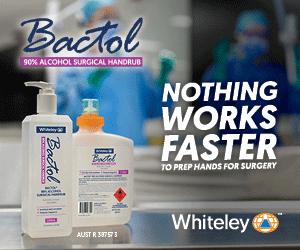Imagine what it feels like to miss out on birthdays, Christmas, celebrations, events, important memories and self-care time.
Imagine what it feels like to have anxiety about going to work because you’re tired from shift-related insomnia and short staffing.
Imagine what it feels like to stay up all night to look after someone else’s loved one, to be so tired you can barely speak at handover, yet be responsible for the health and care of so many lives.
Imagine what it feels like to go to work and be hit, spat at, scratched, pooped on, yelled at, peed all over, food thrown at you – all because you’re in a hurry to give your residents the basic care and time they need.
Imagine the shame we feel when relatives complain their loved ones are losing weight, have uncut nails, uncleaned faces, wrinkled clothing, untidy or unwashed hair, untidy rooms, unmade beds or smell like they have soiled themselves, are not being walked enough, showered enough, or have been left at the lunch table for over an hour… the list goes on.
Imagine what it feels like to work through meal breaks, to barely get to the toilet, to work unpaid overtime or stay longer to help short-staffed colleagues – then go to work on your well-earned days off to complete your paperwork.
Imagine what it feels like to run out of time to contact the GP to chart the pain relief or antibiotics needed; to be exhausted and running on empty yet be legally responsible for the health and lives of so many.
Imagine what it feels like for a new graduate nurse to have no support or orientation into a busy, short-staffed and complex environment.
Imagine feeling so stressed out that you snap impatiently and that new grad breaks down in tears because of the situation you are both in.
Imagine what it is like as a preceptor not being able to mentor and deliver the right skills, knowing both our work is under scrutiny every day and we will be the ones getting hung out to dry if we screw up.
Without mandatory safe staffing, this is what we go through.
We said yes to the aged care sector, putting our own lives on hold to give your loved ones care and support. We do this with a smile, a laugh or a joke, without judgement, thanks or expectations. If this was my mum, your dad, her uncle, his brother, our grandchildren, their aunty or any one of our whānau, we would want their care to be the best possible.
Get behind us, support us and vote for mandatory staffing ratio numbers that we can work with to provide time, care and more support to your loved ones. I want to advocate for the best aged-care nursing that staff and families signed up for.
 As a registered nurse (RN) within aged care I have worked in an understaffed environment at least 40 to 50 per cent of the time for the past year. We have one RN for 36 to 40 high-needs residents in the hospital wing.
As a registered nurse (RN) within aged care I have worked in an understaffed environment at least 40 to 50 per cent of the time for the past year. We have one RN for 36 to 40 high-needs residents in the hospital wing.
As I also have management responsibilities, much of my time is taken up managing staff. I have very little time to provide actual nursing care to the residents. Most shifts, I am supervising at least six caregivers and one enrolled nurse (EN). On top of this, I work as a duty nurse in the afternoon and weekends. I also oversee two other wings within the facility, which includes a rest home with at least 24 residents and capacity for 40; and a dementia unit usually with around 17 residents and capacity for 24.
During the week, we also have a clinical coordinator and a manager (an RN) overseeing the whole facility (up to 100 residents). We recently added a second manager.
But at times, we have not had a clinical coordinator, leaving the manager to do both jobs.
Currently, aged care staffing is governed by 15-year-old guidelines from the Ministry of Health, which are voluntary and based around how many weekly hours of care residents should receive.
In my workplace, the rest home has one caregiver per 30 residents plus one unit coordinator on call at all times. The hospital has one RN on duty at all times, with at least two caregivers.
There is a high level of training required for all staff who work in the dementia facility – however orienting new staff also takes time away from residents. The residents in the dementia facility have complex and often acute health needs – yet these do not change the minimum staffing requirement for the facility to meet its contractual requirement with the district health board.
Currently it is at the discretion of aged residential care (ARC) management to provide safe clinical care with the right skill mix.
Based on the current voluntary standards, nurses can only provide six minutes of care per shift to each resident.
What can you do in six minutes?
So, what would a mandated safe staffing ratio look like?
- We would be able to provide quality care by supporting and being available to doctors when they do rounds for their residents.
- We would be able to provide showers to all residents who choose to have one instead of only having the capacity to shower those residents with the greatest need.
- We could assist more with giving oral fluids to reduce dehydration and see fewer negative health consequences such as falls as a result of this basic need being met.
- Residents’ nails would be cut regularly.
- We RNs would have time to participate fully in multidisciplinary meetings to discuss residents’ care and needs. We would then have time to put those care and referrals in place.
- Paperwork and care planning for each resident would be more up-to-date and relevant.
- There would be less delay getting GPs called in when needed.
- Medications, including pain relief, would be given on time to keep pain under control before levels got too high.
- Being able to sit with residents longer, to get a comprehensive assessment and meet their concerns.
In short, minimum mandated staffing would mean that I, as an RN, would be able to provide the care that I am educated for and longing to be able to give. It would mean that residents would reach their health potential under my care and live a fuller and happier life. Families would be able to sleep at night knowing their loved ones were receiving great care.
In Safe Hands? Two year campaign continues
NZNO HAS been fighting for mandated safe staffing levels in aged care for more than a decade, NZNO industrial advisor aged care Lesley Harry says. In 2018, joint NZNO-E tū research In Safe Hands? found high levels of distress and exhaustion in aged care staff. It found recommended care levels were not met or delayed across shifts, as too-few staff were forced to “ration” their time.1
NZNO is calling for 15-year-old voluntary staffing standards to be reviewed and made mandatory.
An NZNO-E tū safe staffing petition is underway and an open letter to the Prime Minister can be signed here.




